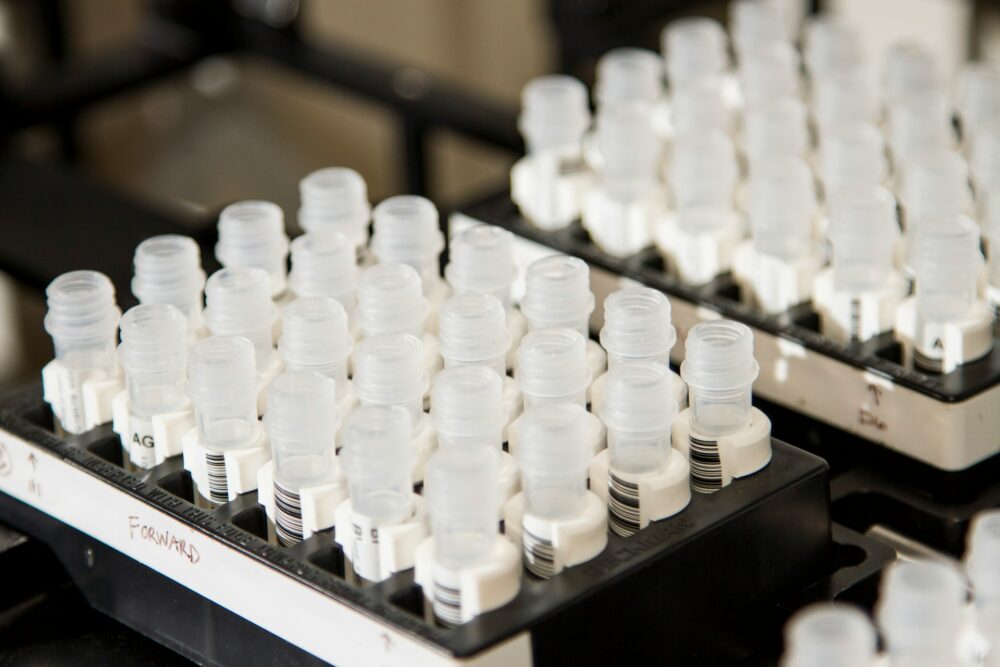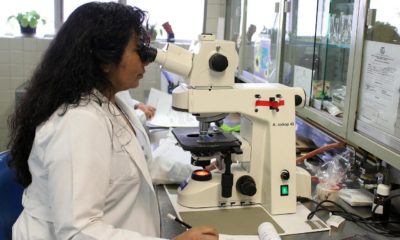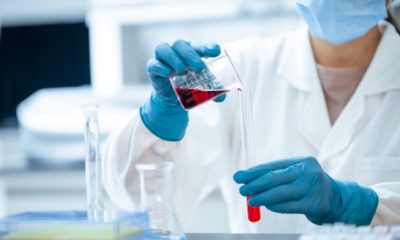Biotech
Peaches Biotech Receives Green Light to Start Its First Clinical Trial in Humans
Peaches Biotech is investing €6.8 million in a new secretome platform study, with phases I and II ending this year and the final phase starting in 2025. The platform will produce 25 regenerative treatments, including for muscles, tendons, and nerves. Peaches also bought a Harvard patent for a pancreatic cancer drug and has established Histokine, a certified factory for advanced therapies.

Peaches Biotech has received the green light from the Spanish Agency for Medicines and Medical Devices (AEMPS) to begin its first clinical trial in humans of its secretome against inflammation. This will be the first therapy in its portfolio to land on the market. In fact, the expected date for its commercialization is 2026.
The estimated investment for the study is around 6.8 million euros, according to Peaches Biotech
Specifically, 3.2 million will be used in phase I and II, and 3.6 million in the last stage. It is worth mentioning that it plans to finish the first two phases this year and start the last one in 2025. In addition, Peaches Biotech has already signed an agreement with the Hospital de Fuenlabrada (Madrid) to begin the study there. At the moment, 42 patients will participate.
The laboratory has invested around 20 million euros in the development of its secretome platform created from cell co-culture. This is a new model based on two cell lines in culture and always without touching each other. In this way, they communicate with each other, reading each other’s characteristics and signalling each other. The researcher then selects the orders that the stem cell demands from the selected tissue so that it is restored and regeneration occurs.
Up to 25 different medicines will be launched from the platform. In fact, they will be hospital treatments and each one will have a different secretome. After the treatment for inflammation, the next ones to hit the market will be a muscle regenerator, a tendon regenerator and a nerve regenerator. All of them are being investigated in animals and it is expected that they will be launched in humans next year. Afterwards, they will launch a bone regenerator, a hair regenerator and other medicines included in the platform.
It should be noted that these types of drugs are usually expensive, but Peaches Biotech claims that its treatments will be competitively priced. To achieve this, its plan is to sell the licenses for these drugs. At the moment, several pharmaceutical companies are closely following the progress of the Madrid-based company’s research.
On the other hand, it is not only developing the secretome platform. In 2021, it bought the patent ‘OpT-Cells’ from Harvard University (United States). It is a drug that aims to cure pancreatic cancer. Currently, it is in a pectin trial, which will end this year and will move to phase I in humans in the first half of 2025. At the moment, it has achieved 70% therapeutic efficacy.
Histokine, the factory of secretomes
Peaches Biotech has created its own factory to produce its secretome platform, a type of advanced therapy. This is Histokine, a joint venture between the Madrid-based company and Histocell together with Cardiva. It is the first plant of its kind authorized by the regulatory system with “Good Manufacturing Practices” certification, according to the president of Peaches Biotech, Juan Carlos De Gregorio.
It is located in Bilbao and is an extension of the Histocell facilities. Advanced biological, genetic, regenerative and cellular therapies are manufactured there. The Madrid company’s treatments are mainly manufactured for clinical trials. However, it also produces for third parties. In fact, it has around ten agreements with different companies, both national and international.
__
(Featured image by National Cancer Institute via Unsplash)
DISCLAIMER: This article was written by a third party contributor and does not reflect the opinion of Born2Invest, its management, staff or its associates. Please review our disclaimer for more information.
This article may include forward-looking statements. These forward-looking statements generally are identified by the words “believe,” “project,” “estimate,” “become,” “plan,” “will,” and similar expressions. These forward-looking statements involve known and unknown risks as well as uncertainties, including those discussed in the following cautionary statements and elsewhere in this article and on this site. Although the Company may believe that its expectations are based on reasonable assumptions, the actual results that the Company may achieve may differ materially from any forward-looking statements, which reflect the opinions of the management of the Company only as of the date hereof. Additionally, please make sure to read these important disclosures.
First published in elEconomista.es. A third-party contributor translated and adapted the article from the original. In case of discrepancy, the original will prevail.
Although we made reasonable efforts to provide accurate translations, some parts may be incorrect. Born2Invest assumes no responsibility for errors, omissions or ambiguities in the translations provided on this website. Any person or entity relying on translated content does so at their own risk. Born2Invest is not responsible for losses caused by such reliance on the accuracy or reliability of translated information. If you wish to report an error or inaccuracy in the translation, we encourage you to contact us

-

 Fintech3 days ago
Fintech3 days agoImpacta VC Backs Quipu to Expand AI-Driven Credit Access in Latin America
-

 Fintech1 week ago
Fintech1 week agoNubank Launches in Argentina With $474M Bet to Shake Up the Fintech Market
-

 Impact Investing3 hours ago
Impact Investing3 hours agoClimate Losses Drive New Risk Training in Agriculture Led by Cineas and Asnacodi Italia
-

 Biotech1 week ago
Biotech1 week agoWhy Bioceres Shares Slide Into Penny Stock Territory
























